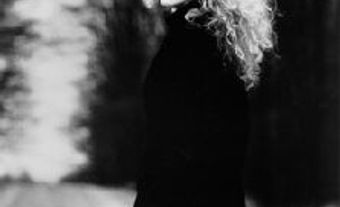John (Anthony) Oswald. Composer, saxophonist, record producer, dancer, writer, b Kitchener, Ont, 30 May 1953. His teachers included R. Murray Schafer and Barry Truax at Simon Fraser University and David Rosenboom, Casey Sokol, Richard Teitelbaum, and James Tenney at York University. Oswald first came to notice as an habitué in the mid-1970s of the Music Gallery, where his affiliations included Pitch (established in 1976 with Marvin Green and responsible for a variety of events held in total darkness), the Glass Orchestra, the New Music Co-op and, as founder and sometime editor, Musicworks.
Oswald has performed throughout Canada and in the USA as an alto saxophonist, playing in both solo and group improvisational settings. With the US guitarist Henry Kaiser he recorded Improvised (Music Gallery Editions MGE-12) in 1978; with Kaiser and the Japanese trumpeter Toshinori Kondo he made the LP Moose and Salmon (Music Gallery Editions MGE-30) in 1979. A solo LP, Alto Saxophone, for Metalanguage, followed in 1981. Oswald, whose style is generally free of jazz references and often fiercely expressive, also has appeared on other albums by Kaiser, as well as recordings by Alfred Harth and M+M. Under Oswald's direction Pool, an improvisation collective originally established at the Gallery in 1979, was held on a weekly basis 1982-8 at the Cameron Public House.
In dance, he has prepared scores (mostly tape) for Dancemakers, Tangente, Toronto Independent Dance Enterprise, and Bill Coleman's North American Experience (the full-length ballets Shane, 1987; Baryshnikov, 1987; Zorro, 1989), and for several choreographers - eg, Jennifer Mascall (Parade, 1986; Elle, 1989), Paula Ravitz and Denise Fujiwara (Skindling Shades,1987; renamed Spontaneous Combustion) and Fujiwara alone (Loud Colors, 1990), Holly Small (Wounded, 1988, Small Attack, 1990), Bill Douglas (Anima, 1990), and James Kudelka (Case of Death, 1991). He has participated as an accompanist and/or dancer in performances.by Fujiwara, Small, Danceworks, the North American Experience, and others.
In 1980 Oswald established the Mystery Tapes Laboratory, preparing and distributing music/sound collages on cassettes packaged with neither sources noted nor explanations given. In 1987 he reversed the principle with the EP Plunderphonics, which comprised four 'revised performances' created by the 'plundering' (ie, studio manipulation, including 'sampling' and subsequent reconstruction) of recordings by Count Basie, Dolly Parton, and Elvis Presley, and of The Rite of Spring. A CD of Plunderphonics followed in 1989, with an additional 20 plundered performances by the Beatles, Glenn Gould (from the Goldberg Variations), Michael Jackson, et al, and of Liszt, Webern, Verdi, and Beethoven. Although Oswald's sources were scrupulously acknowedged and the recordings given free of charge to musicians, critics, libraries, etc, the CD nevertheless was deemed to be in violation of Canadian copyright laws. Under the threat of legal action Oswald relinquished the master tapes and all undistributed copies to CRIA which in 1990 had them destroyed. Ironically, Oswald was subsequently commissioned by the US label Elektra to plunder its catalogue and prepared the CD Rubáiyát Plunderphonics (Elektra PRCD-8247, issued in 1991) to mark the company's 40th anniversary.
Oswald has received other commissions from ARRAYMUSIC (Slide Whistles, 1976; Acupuncture, 1991) and the Kronos Quartet, and has prepared scores for the RectoVerso theatre company of Matane, Que. His first piece for the Kronos, Spectre (1990), is in the composer's words 'for gesturing string quartet and the recorded allusion of a 1001 string orchestra'. A second work for Kronos, premiered in part in 1991, involved the plundering of the Beethoven quartets.
Writings
'Plunderphonics,' Musicworks, 34, Spring 1986
'Bettered by the borrower (the ethics of musical debt),' Whole Earth Review, 57, 1987
'Neither a borrower nor a sampler prosecute,' Keyboard, vol 14, Mar 1988 (repr as 'Ethics and the wonderful new world of sampling,' CanComp, 232, Jul-Aug 1988)

 Share on Facebook
Share on Facebook Share on X
Share on X Share by Email
Share by Email Share on Google Classroom
Share on Google Classroom

